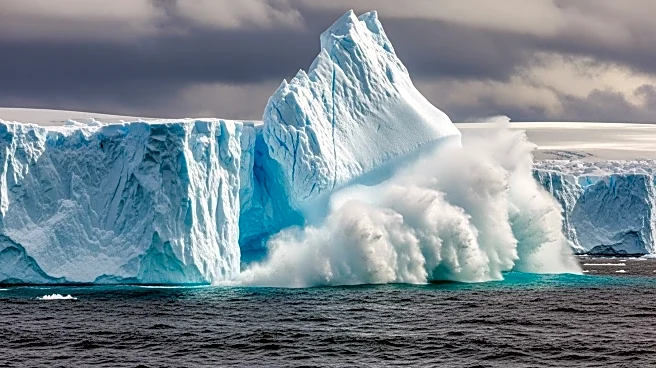What's Happening?
In September 2023, a significant seismic event originating from a massive landslide in Greenland's Dickson Fjord captured global scientific attention. This landslide generated a 656-foot-high mega-tsunami and produced a unique seismic signal that lasted nine days, detectable worldwide. The event is linked to climate change, as the destabilization of glaciers in the region is believed to have triggered the landslide. Researchers utilized advanced satellite technology, such as the Surface Water Ocean Topography (SWOT) mission, to analyze the tsunami's impact, emphasizing the need for real-time monitoring in remote areas.
Why It's Important?
The Greenland landslide and subsequent tsunami underscore the increasing frequency of extreme geological events driven by climate change. As global temperatures rise, Arctic glaciers become more susceptible to destabilization, leading to catastrophic events like this one. The ability to monitor such occurrences in real-time is crucial for predicting and mitigating future disasters. This event highlights the interconnectedness of Earth's systems and the importance of understanding these links to improve disaster preparedness and response strategies.
What's Next?
The event has prompted calls for enhanced monitoring and research into the effects of climate change on geological stability. Scientists and policymakers are likely to focus on improving satellite and seismic data collection to better predict and respond to similar events in the future. International collaboration and technological advancements will be key in addressing the challenges posed by climate change-induced geological phenomena.
Beyond the Headlines
The Greenland landslide serves as a reminder of the broader implications of climate change on global stability. It raises ethical and policy questions about the responsibility of nations to address climate change and protect vulnerable regions. The event also highlights the need for increased investment in scientific research and technology to better understand and mitigate the impacts of climate change.










